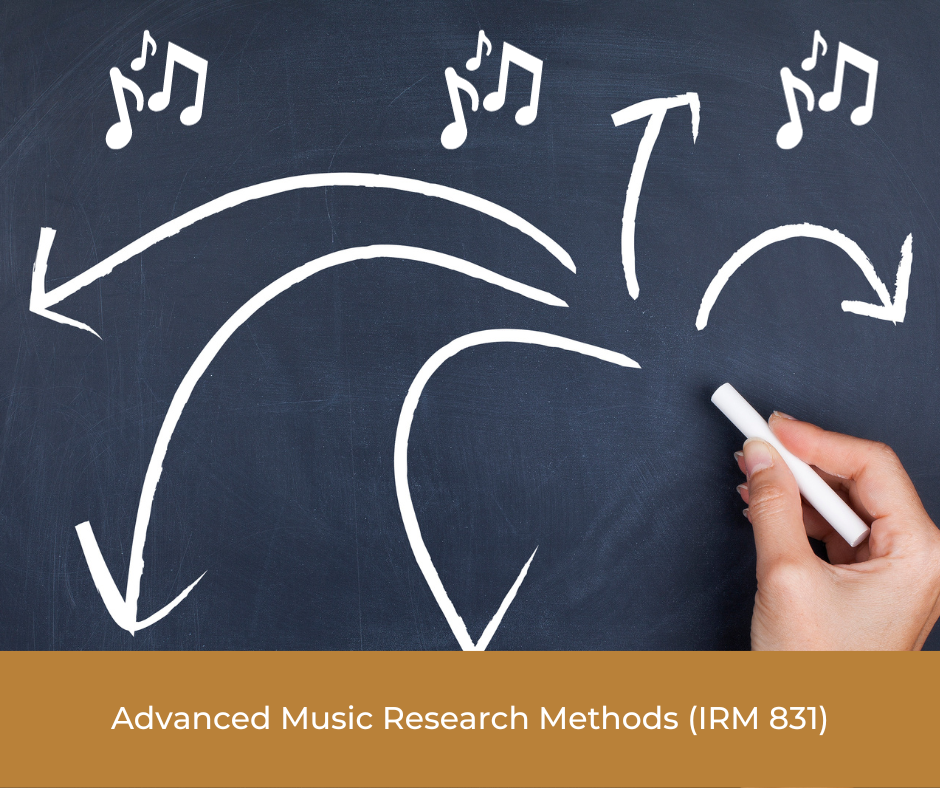Course Title: Advanced Music Research Methods
Course Description: The Advanced Music Research Methods course is dedicated to in-depth exploration of advanced research methodologies applied in music studies. Students will delve into a wide spectrum of research approaches, both qualitative and quantitative, master the art of conducting comprehensive literature reviews, and develop their research proposals. This course equips students with the essential skills and knowledge required for advanced research in the field of music.
Outline of Major Content Areas:
- Ethnographic Research in Music:
- Understanding the principles and practices of ethnography in music research.
- Examining the role of fieldwork, participant observation, and interviews in music ethnography.
- Historical and Archival Research:
- Discovering historical research methodologies in musicology.
- Navigating music archives, libraries, and primary sources for historical investigation.
- Quantitative Analysis of Musical Data:
- Learning statistical techniques and software relevant to music data analysis.
- Applying quantitative analysis to understand musical patterns and trends.
- Musicology Research Methods:
- Exploring various research methods employed in musicology.
- Gaining expertise in analyzing musical compositions, scores, and performance practices.
- Practical Projects:
- Designing and conducting research projects, which may include original fieldwork, transcription, or the analysis of musical compositions.
- Applying research skills acquired in the course to practical, real-world music research.
Course Learning Outcomes:
Upon completion of this course, students will have achieved the following learning outcomes:
- Ethnographic Proficiency: Mastered the techniques and ethics of ethnographic research in the context of music studies.
- Historical Research Competence: Gained the expertise needed to explore music history, access archival resources, and conduct thorough historical research.
- Quantitative Data Analysis Skills: Acquired the ability to analyze musical data using quantitative research methods, including statistical analysis and data visualization.
- Musicological Research Expertise: Developed competence in applying research methods specific to musicology, including the analysis of musical compositions and performance practices.
- Effective Research Proposal Development: Learned to create comprehensive research proposals, with a focus on research questions, methodologies, and a clear plan of action.
- Practical Research Application: Applied research skills in practical projects, conducting original fieldwork, transcription, and musical composition analysis.
Methods for Assessing Student Learning:
Student learning will be assessed through a diverse set of evaluation methods designed to gauge their comprehension and practical application of advanced music research methods:
- Research Papers: Submission of research papers that apply advanced research methodologies, reflecting the skills and knowledge acquired throughout the course.
- Research Proposal Presentation: Evaluation of research proposal presentations, where students will be assessed on their ability to construct well-structured research plans.
- Class Participation and Discussions: Active participation in class discussions and activities related to research methods, providing students with opportunities to express their understanding and insights.
- Quantitative Data Analysis Projects: Conducting quantitative analysis of musical data, which may involve statistical analyses and data visualizations.
- Historical Research Assignments: Assessment of historical research assignments, focusing on the quality of primary source usage and historical analysis.
- Ethnographic Fieldwork: Evaluation of ethnographic fieldwork and research reports, assessing students’ abilities in conducting fieldwork and producing high-quality ethnographic research.
Through these multifaceted assessments, students will not only gain knowledge of advanced music research methods but will also develop the practical skills necessary for conducting innovative and impactful research in the field of music.
